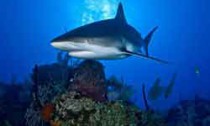
To mark Shark Awareness Day, the World Wildlife Fund (WWF) has urged all Mediterranean countries to urgently act to improve the information and awareness for fishermen, boost controls and ensure an adequate system to report the capture of sharks and rays.
The organization wrote in a statement that sharks and rays are fundamental indicators of the state of health of the oceans and their beneficial impact on the welfare of the seas is wide-ranging.
In many areas of the world, they also represent an important economic resource for tourism. The WWF will promote on its social media accounts a special marathon to inform on the importance of sharks for the marine ecosystem, dispelling myths about the threat posed by this species and suggesting behavior to promote its preservation.
The public will be granted the possibility of taking a new quiz on these species, discovering the technological novelties to save them as well as advice on what to eat to preserve them.
The project M.E.C.O (Mediterranean Elasmobranch Citizen Observation), an initiative of the Mediterranean composed by local ”Citizen Scientists”, shared with the WWF photos and videos posted on social media over the last few years in Italy, Spain, France, Greece, Croatia, Cyprus, Turkey, Tunisia, Libya, Algeria and Morocco.
Evidence gathered over the last three years shows fishermen illegally capturing protected species of sharks and rays, including angel sharks and great white sharks, all at risk of extinction.
Dogfish, a species that has diminished by 90% in the Mediterranean, has no adequate system to officially report its capture. In some instances, including a recent case in Catania, species of shark which are at risk of extinction end up at local markets and are sold as swordfish or other species that are more expensive.
No country is immune to this problem: the illegal commerce of sea devils (mobula) has been registered in Algeria, Libya, Turkey and Spain. The great white shark, mako shark and hammerhead shark have ended up in markets in Morocco, Tunisia, Italy and France although they are in great danger of extinction.
The capture of less known species – which are however under threat – have been reported in Greece, Spain, Libya and Turkey. Dogfish can be found in markets in Croatia although there is little data on their capture. ”We knew that sharks and rays were illegally fished and transported in the Mediterranean but these reports provide further confirmation that the phenomenon can be found across the area and how its impact concerns a wide range of species at risk. It is shocking that laws protecting sharks and rays in the Mediterranean are constantly broken with few or no consequences and that already existing tools to improve fishing management are not effectively used. The extinction even of one of these predators of our sea would be a tragic loss for the entire marine ecosystem”, said Giulia Prato, a marine biologist and sea officer of WWF Italia.
The Mediterranean is a hotspot of biodiversity for sharks and rays with more than 80 registered species but over half are under threat and some are at risk of extinction. Although legislation bans to disembark protected species of sharks and rays and eases fishing pressure on other species, controls are scarce and bans often ignored.
Regulations aimed at the conservation of vulnerable species are not effective and often not correctly implemented at a national level and – as proven by the reports in the hands of the WWF – regulations in place are systematically ignored in markets across the region. The result is that threatened species of sharks and rays are illegally captured while for others the system to report and manage cases is poor or nonexistent. ”As of today, no Mediterranean state – including Italy – has delineated in a complete way a national plan for the long-term conservation, management and sustainable use of sharks and rays.
We can’t wait anymore”, concluded Giulia Prato. The WWF is working across the Mediterranean with fishermen and other interested actors to improve awareness on endangered species and develop new strategies to avoid the accidental capture of sharks and rays. At the same time, the organization is putting pressure on governments to increase controls to fight illegal activities and ensure a more sustainable management of fishing impacting sharks. Particular attention is aimed at critical habitats, like feeding and nursery areas, which should also be protected from destructive economic activities, according to the WWF.










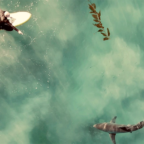
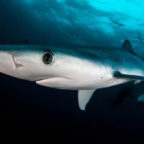
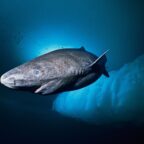
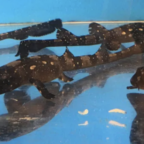

Social Profiles